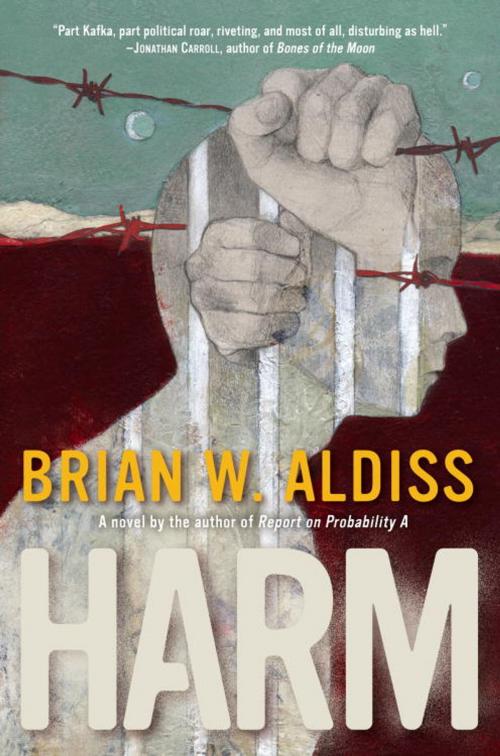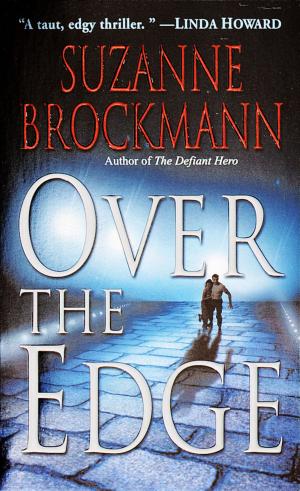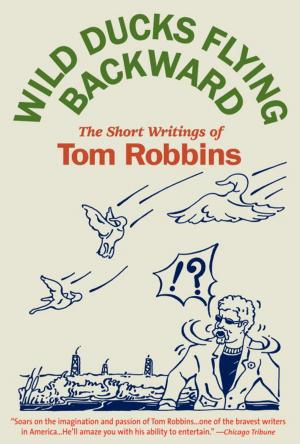| Author: | Brian W. Aldiss | ISBN: | 9780345500373 |
| Publisher: | Random House Publishing Group | Publication: | May 29, 2007 |
| Imprint: | Del Rey | Language: | English |
| Author: | Brian W. Aldiss |
| ISBN: | 9780345500373 |
| Publisher: | Random House Publishing Group |
| Publication: | May 29, 2007 |
| Imprint: | Del Rey |
| Language: | English |
From one of science fiction’s greatest living writers comes an unforgettable near-future novel in the hortatory tradition of Bradbury’s Fahrenheit 451, Orwell’s 1984, and Dick’s A Scanner Darkly. Both a searing indictment of a fear-drenched political climate and a visionary allegory that shines a piercing light on timeless human verities, HARM is a powerfully compact masterwork that is sure to be one of the most passionately discussed books of the year.
The time is today or tomorrow—or perhaps the day after tomorrow. Paul Fadhil Abbas Ali, a young British citizen of Muslim descent, has written a satirical novel in which two characters joke about the assassination of the prime minister. Arrested by agents of HARM—the Hostile Activities Research Ministry—Paul is thrown into a nameless Abu Ghraib-like prison, possibly located in Syria, where he is held incommunicado and brutally interrogated by jailers to whom his Muslim heritage is itself a crime meriting the harshest punishment. Under this sadistic regime, Paul’s personality begins to show signs of radical fragmentation. . . .
On the remote planet of Stygia, a man named Fremant, haunted by memories of torture that seem drawn from Paul’s mind, is one of a small group of colonists struggling for survival on a harsh but weirdly beautiful world whose dominant life-forms are insects. The sole humanoid race on the planet has been hunted to extinction by the human settlers, whose long journey to Stygia has left them unable to understand their own history and technology.
Thrown back to a more primitive state, they seem destined to repeat all the sins of the world they fled to Stygia to escape.
Is Paul dreaming Fremant as a way of escaping the horrors of his imprisonment? Or is there a stronger—and far stranger—connection between the two men, whose very different circumstances begin to take on uncanny parallels?
As aspects of their identities blur and, finally, merge, astonishing answers take shape—and profound new questions arise.
From one of science fiction’s greatest living writers comes an unforgettable near-future novel in the hortatory tradition of Bradbury’s Fahrenheit 451, Orwell’s 1984, and Dick’s A Scanner Darkly. Both a searing indictment of a fear-drenched political climate and a visionary allegory that shines a piercing light on timeless human verities, HARM is a powerfully compact masterwork that is sure to be one of the most passionately discussed books of the year.
The time is today or tomorrow—or perhaps the day after tomorrow. Paul Fadhil Abbas Ali, a young British citizen of Muslim descent, has written a satirical novel in which two characters joke about the assassination of the prime minister. Arrested by agents of HARM—the Hostile Activities Research Ministry—Paul is thrown into a nameless Abu Ghraib-like prison, possibly located in Syria, where he is held incommunicado and brutally interrogated by jailers to whom his Muslim heritage is itself a crime meriting the harshest punishment. Under this sadistic regime, Paul’s personality begins to show signs of radical fragmentation. . . .
On the remote planet of Stygia, a man named Fremant, haunted by memories of torture that seem drawn from Paul’s mind, is one of a small group of colonists struggling for survival on a harsh but weirdly beautiful world whose dominant life-forms are insects. The sole humanoid race on the planet has been hunted to extinction by the human settlers, whose long journey to Stygia has left them unable to understand their own history and technology.
Thrown back to a more primitive state, they seem destined to repeat all the sins of the world they fled to Stygia to escape.
Is Paul dreaming Fremant as a way of escaping the horrors of his imprisonment? Or is there a stronger—and far stranger—connection between the two men, whose very different circumstances begin to take on uncanny parallels?
As aspects of their identities blur and, finally, merge, astonishing answers take shape—and profound new questions arise.















